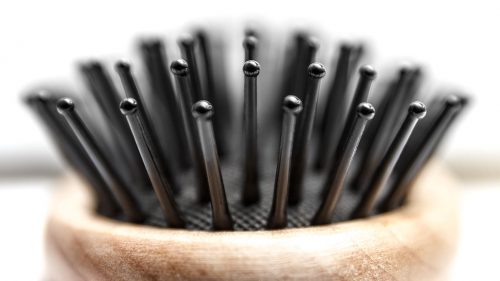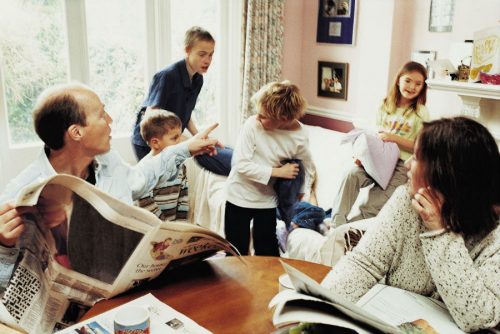Opening up to your loved ones can be scary, especially when it comes to a serious topic like mental health. According to psychology, most kids are afraid to even acknowledge it in themselves because of the stigma in their own home; that feeling sad or anxious is a “common thing” and that you should ignore it. It’s important to let them feel comfortable in telling you exactly how they think, that what they’re feeling is valid and you are the right person to talk to. Psychology suggests that many children or teens are afraid of telling their parents, in fear of upsetting them or being shut down completely.
“Stigma manifests as misguided stereotypes and negative attitudes or beliefs towards those with mental illness,” says Richa Bhatia, MD, FAPA. “Research shows that stigma and embarrassment were the top reasons why people with mental illness did not engage in medication adherence, such as self-care, therapy and medication compliance.”
According to most experts in BetterHelp, it’s essential to make your child feel that rather than you being upset, you are happy they chose to confide in you. Making them feel like you are always ready to help them in every way possible is the key to getting them to tell you how they’re feeling. To be prepared if ever you think your child is struggling with something, here are some instances or thoughts that may be going through your child’s head.

Source: pixabay.com
“My family won’t believe me or take me seriously.”
Never dismiss or invalidate how your child is feeling, especially when they do choose to tell you when something is wrong. It’s fundamental to know that if your child is already hurting; dismissing their issues may make the experience more painful. Unfortunately, it will slow down his emotional and mental growth. Always let your children explain everything thoroughly for you to understand what they need fully. Also, letting go of any negative preconceived notions about getting professional help will be a good idea, because if your child says they want to seek advice, it’s best to assume they need it.
“I don’t want my family to worry about me.”
Though all families may go through different problems that occur in and out of the home, make sure to prioritize the issues of your children still, may it be big or small. If it is troubling them or if they open up to you about it, it must be worth listening to. It always should be.
“I don’t know or I’m afraid of how my family will react.”
Our children may still be hesitant to talk to you, but once you notice that something is troubling them, you must open up the topic to them, or at least make them feel that they can address things; the sooner, the better. If they’re hesitant, you can opt for them to talk to one person/parent at a time. Make your children feel like they can reach out to you may it be through letters, text messages, or subtle conversations from time to time.

Source: pxhere.com
To be more prepared in case you feel like your children suffer from mental health issues, the following are signs and symptoms of common mental health illnesses in children:
Depression In Children
- Continuous feelings of sadness
- Sudden changes in appetite (increase or decrease)
- Changes in sleeping pattern
- Fatigue and low energy
- Difficulty concentrating
- Feeling worthless or guilty
- Thoughts of Death
- Feeling angry or irritable
- Isolating one’s self from social circles/family
Depression in children often isn’t treated because it’s brushed off or seen as regular emotional and mental changes. Earlier medical studies showed children could also show sign of depression by acting out through angry behavior. Depression is relatively rare under the age of 12 and more frequent from ages 12 and above. It is more common in boys under the age of 10, and for girls, it’s more common around the age of 16.
According to Ajay K Thapar, PhD and co-authors, “much research has been done into the association between depression and environmental factors such as exposures to acute stressful events (e.g., personal injury, bereavement) and chronic adversity (eg, maltreatment, family discord, bullying by peers, poverty, physical illness).” They also added that “stressful life events seem more strongly associated with first onset rather than recurrence of depression, and risk is considerably greater in girls, and in adolescents who have multiple negative life events than those exposed to one event.”
Anxiety In Children
- Insomnia
- Nightmares
- Improper eating patterns
- Becoming immediately angry
- Uncontrollable outbursts
- Constant worry and negative thoughts
- Feeling tense or using the toilet frequently
- Frequently sobbing/crying
- Clinging to loved ones all of a sudden
- Stomach aches/ nausea
There are different types of anxiety; separation anxiety is common in young children, while older children and teenagers usually have social anxiety.

Source: pxhere.com
According to Jeanne Segal, Ph.D And c-author, “even if [isolation is] the last thing you want to do, try to force yourself to stay social. As you get out into the world and connect with others, you’ll likely find yourself starting to feel better.
Though it really may be difficult to get your children to open up to you about such things, it’s best to let them come to you. When you think something is troubling them, but you don’t want to pry immediately, try to do smaller things and gestures that show them you’re always there when they’re ready. It’s good to let them know that you’ll believe them, you want to know more, and you will do everything to help them. Mental health shouldn’t be a myth or joke in any household; many parents realize this too late in their children’s lives because they never acknowledged or thought of the possibility. Your children’s emotions are always valid. So take the time to consider their mental needs.
 Source: pixabay.com
Source: pixabay.com
 Source: pixabay.com
Source: pixabay.com











